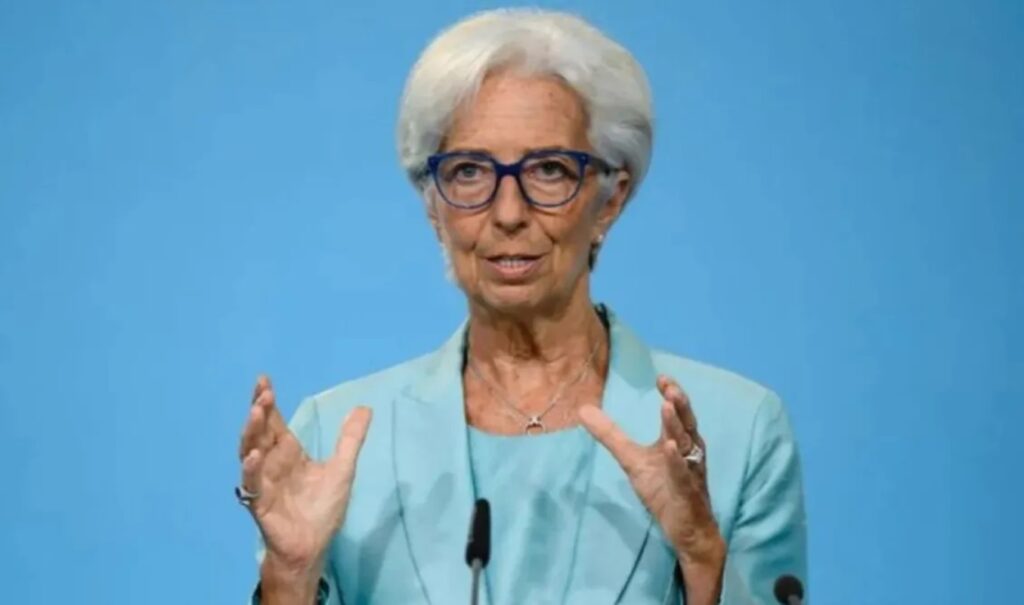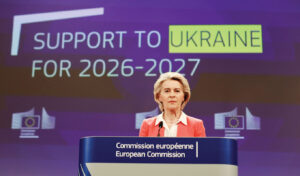Referring to the “trauma” caused by Greek statistical data in the past, but with a clear message that their credibility has now been restored, European Central Bank President Christine Lagarde made her appearance. The ECB President expressed optimism about the eurozone economy’s prospects, emphasizing that growth risks are diminishing following recent trade agreements with the US.
As she stressed in a press conference: “The risks to economic growth have become more balanced. While recent trade agreements have reduced uncertainty, a new deterioration in trade relations could further slow exports and reduce investments and consumption. The deterioration of climate in financial markets could lead to stricter financing terms, greater risk aversion and weaker growth. Geopolitical tensions, such as Russia’s unjustified war against Ukraine and the tragic conflict in the Middle East, remain a significant source of uncertainty. Conversely, higher-than-expected defense and infrastructure spending, combined with productivity-enhancing reforms, will contribute to growth. Improved business confidence could boost private investment. The climate could also improve and activity could be strengthened if geopolitical tensions decrease or if remaining trade disputes are resolved faster than expected.”
Earlier, the ECB Governing Council had decided to keep all three key interest rates unchanged, with the deposit rate at 2%, while revising upward the growth forecast for this year. The projections show a growth rate of 1.2% for 2025 (from 0.9% in June), 1.0% in 2026 and 1.3% in 2027. Regarding bond markets, particularly after the pressures caused by the French government’s resignation, Ms. Lagarde assured that “government bond markets are functioning smoothly and with adequate liquidity” and clarified that the ECB has the necessary tools to intervene if deemed necessary.
Regarding data credibility, she noted: “We are fortunate that the statistical data fed to Eurostat by national statistical authorities is reliable and accurate. Despite the trauma caused by Greece’s statistical data a few years ago, I think we have all learned our lesson now.” The new inflation estimates show a similar picture to that of June: expected at 2.1% in 2025, 1.7% in 2026 and 1.9% in 2027. Core inflation excluding energy and food is projected at 2.4% in 2025, 1.9% in 2026 and 1.8% in 2027.
Despite the forecasts, the ECB chief noted that uncertainties remain high due to the international environment. As she mentioned, a stronger euro could reduce inflation further, while fragmentation of supply chains could lead to price increases. Additionally, rising defense and infrastructure spending may fuel inflation in the medium term.




